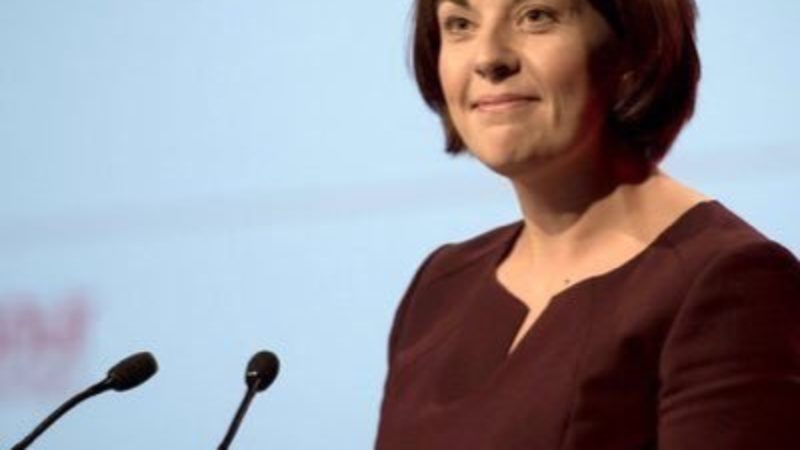

Scotland still “bears the scars” of the last independence referendum and Scottish Labour will resist all attempts to hold a fresh vote on independence, Kezia Dugdale has said.
She launched the website TogetherStronger.scot at Scottish Labour Conference today, where members of the public can sign up to show their opposition to a second referendum.
In her keynote speech to Scottish Labour conference, Dugdale also pledged to campaign to raise child support, saying that “220,000 Scottish children are still in poverty.”
“Charities, anti-poverty organisations and others across Scotland have called for an increase in child benefit to tackle this. And I agree.”
Laying down the gauntlet to Nicola Sturgeon, she said: “Using the new welfare powers in the Scottish Parliament, we will campaign to create a new Scottish Child Benefit.”
“Our plan would see child benefit increase by £240 per year by the end of this Parliament, increasing by £13 a month next year, before rising to £20 per month in 2020.”
According to calculations from one group, Dugdale’s plan could lift 18,000 children out of poverty in the first year alone.
She pointed to Labour’s history and core values on this, saying: “In 1946, Labour introduced family allowance because we believed that everyone – regardless of their income – deserved support from the government when they had children.”
She added: “When the SNP find times are tough, they blame the UK Government. When Labour sees tough times, we roll up our sleeves and get on with protecting people.”
She concluded her speech by invoking the words of the late Jo Cox, saying Scotland was built by those “who realised that we have more in common than that which divides us” adding a call to arms, saying “let’s go out and tell all of Scotland that together, we’re stronger.”




More from LabourList
‘Labour won’t win back left defectors with squeeze messaging alone’
‘Help shape the next stage of Labour’s national renewal through the 2026 NPF consultation’
‘AI regulation is key to Labour’s climate credibility’